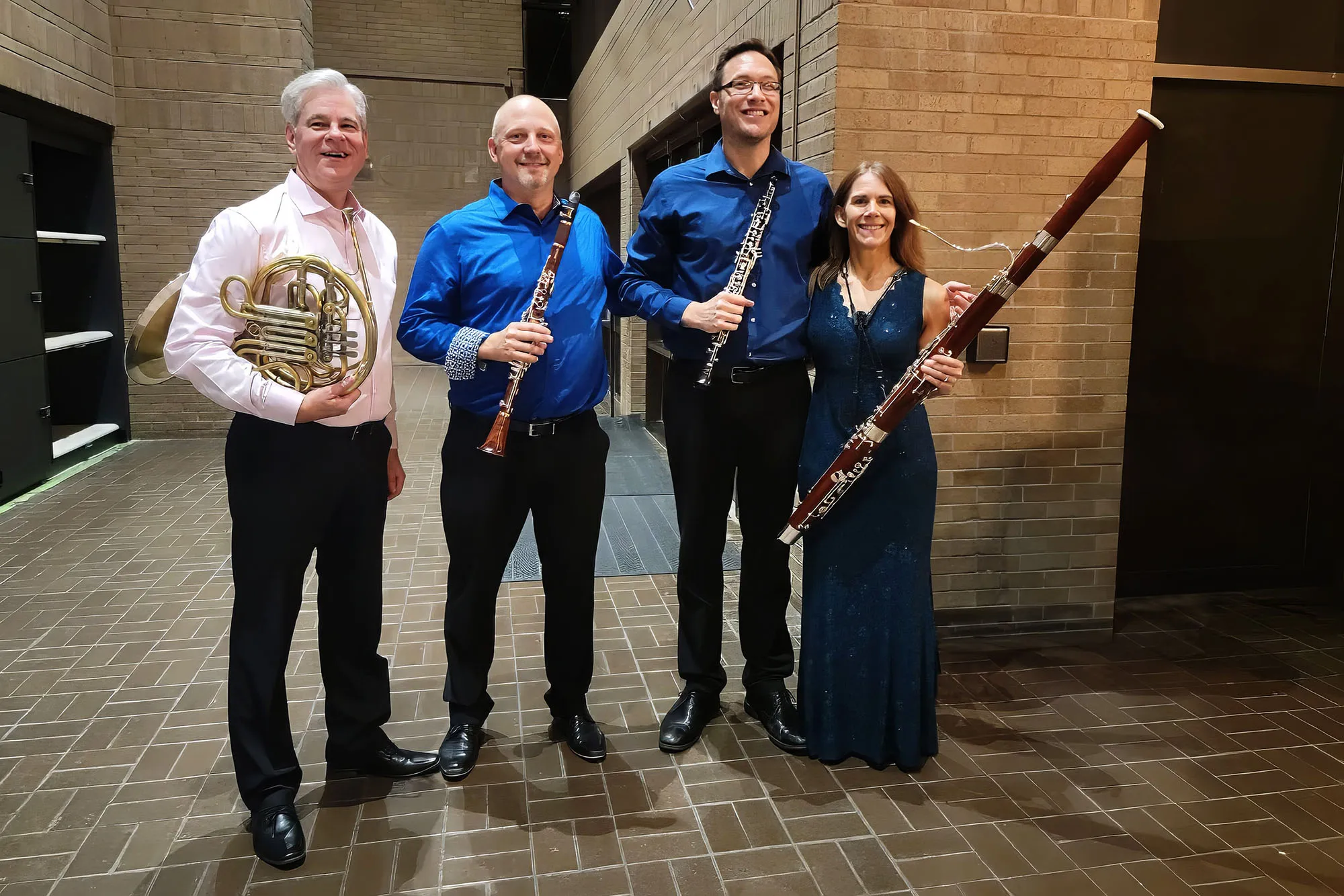About
Bassoon Studio
The bassoon studio at UT is among the strongest in the country, with former students holding positions in major symphony orchestras, universities, military bands and public schools. The bassoon studio is a close-knit group of supportive students who enjoy playing in ensembles together and having reed-making parties. We usually have 8-10 undergraduates and 2-4 graduate students. We hold studio class once a week to provide solo performance opportunities, and a forum to discuss issues such as orchestral excerpts, performance anxiety, reed making, effective practicing, musicians’ health, etc. We frequently have guest master classes by world-renowned bassoonists.
TEACHING PHILOSOPHY
Based on my own experience that hard work pays off by cultivating a deeper love of the art of music, I instill in my students the drive to achieve the highest level of musicianship through goal oriented practice. Since ultimately, each person needs to be their own teacher, and find their own voice, I challenge students to listen for refinements and artistry, and to develop problem solving strategies. I am insistent upon good practice habits, which we frequently discuss and put to use in lessons. My students are expected to play every note musically, with a beautiful sound and artistic purpose. Since posture, breathing and relaxation are the foundations of good tone production and technique, we frequently address those issues. I demand patient, intelligent work on technique, and constant attention to pitch and tone and phrase through heightened listening skills. My intricate system of syllabi ensures that all students are benefiting from sequential learning of scales, long-tones, single-tonguing and double-tonguing exercises, vibrato exercises, and rhythmic training as means toward technical control that enables artistic freedom. Repertoire assignments are tailored to the individual student, and usually include a balance of solo repertoire, etudes and orchestral excerpts. My high standards sustain themselves through my patient and nurturing demeanor – I love what I do.
– Kristin Wolfe Jensen

Kristin Wolfe Jensen with fellow faculty members Patrick hughes (horn), Jonathan Gunn (clarinet), and Andrew Parker (oboe), back stage at Bates Recital Hall after a concert.
REED MAKING
The bassoon students have their own reed room, to which they are issued keys. It is located across the hall from my studio, and houses a Reiger gouger, a Rimpl gouger, two Maxwell profilers, and one single barrel profiler by Pfeifer. There are numerous shapers and other tools available as well.
Reed Making Class is required of all first semester undergraduates, and optional for all other students. It meets once a week.
AUSTIN AND GIGS
Austin is a beautiful city, with a lot of appeal for students. Opportunities to earn extra money playing gigs and teaching bassoon students are abundant. Band is a big deal in Texas, and every middle school and high school has a full bassoon section. My students are able to get as many private students as they can handle, for an excellent hourly wage. One recent graduate is now teaching 50 students, and I still get calls from schools that can’t find a teacher. There are numerous regional orchestras in which students also play, enhancing their professional experience as well as income. Currently, University bassoon students play in the Mid-Texas Symphony, the Central Texas Philharmonic, the Corpus Christi Symphony, the Brazos Valley Symphony, the Victoria Symphony, and are on the substitute list for the Austin Symphony and the Austin Lyric Opera. There are also a number of church jobs throughout the year for which students regularly play.

